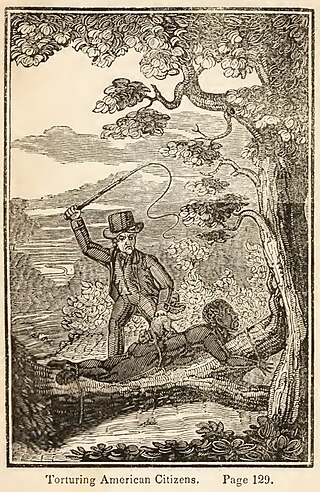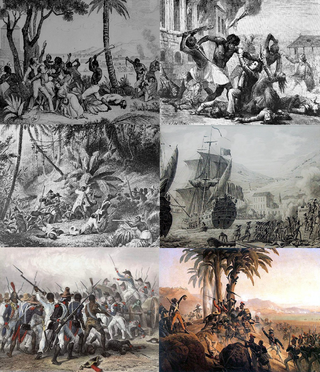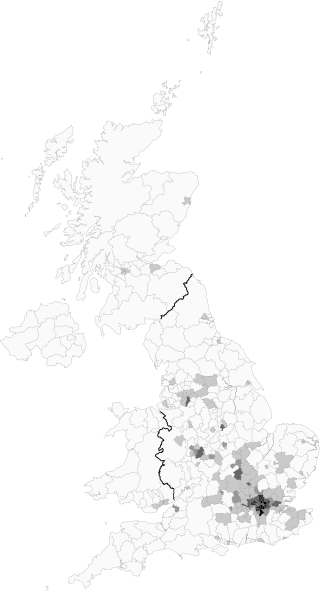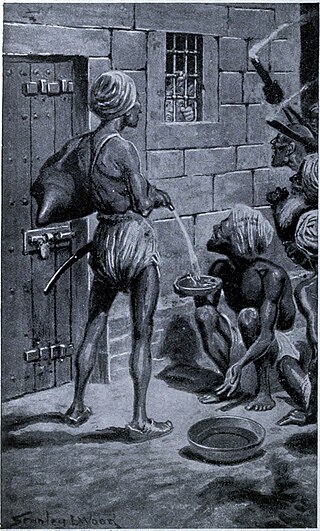
The American Revolutionary War, also known as the Revolutionary War or American War of Independence, was an armed conflict that was part of the broader American Revolution, in which American Patriot forces organized as the Continental Army and commanded by George Washington defeated the British Army.

The American Revolution was a rebellion and political movement in the Thirteen Colonies which peaked when colonists initiated an ultimately successful war for independence against the Kingdom of Great Britain. Leaders of the American Revolution were colonial separatist leaders who originally sought more autonomy as British subjects, but later assembled to support the Revolutionary War, which ended British colonial rule over the colonies, establishing their independence as the United States of America in July 1776.
Rock and roll is a genre of popular music that evolved in the United States during the late 1940s and early 1950s. It originated from African American music such as jazz, rhythm and blues, boogie-woogie, electric blues, gospel, and jump blues, as well as country music. While rock and roll's formative elements can be heard in blues records from the 1920s and in country records of the 1930s, the genre did not acquire its name until 1954.

Rhodesia, officially from 1970 the Republic of Rhodesia, was an unrecognised state in Southern Africa from 1965 to 1979. During this fourteen-year period, Rhodesia served as the de facto successor state to the British colony of Southern Rhodesia, and in 1980 it became modern day Zimbabwe.

A skinhead or skin is a member of a subculture that originated among working-class youth in London, England, in the 1960s. It soon spread to other parts of the United Kingdom, with a second working-class skinhead movement emerging worldwide in the late 1970s. Motivated by social alienation and working-class solidarity, skinheads are defined by their close-cropped or shaven heads and working-class clothing such as Dr. Martens and steel toe work boots, braces, high rise and varying length straight-leg jeans, and button-down collar shirts, usually slim fitting in check or plain. The movement reached a peak at the end of the 1960s, experienced a revival in the 1980s, and, since then, has endured in multiple contexts worldwide.

South African English is the set of English language dialects native to South Africans.

The Underground Railroad was used by freedom seekers from slavery in the United States and was generally an organized network of secret routes and safe houses. Enslaved Africans and African Americans escaped from slavery as early as the 16th century and many of their escapes were unaided, but the network of safe houses operated by agents generally known as the Underground Railroad began to organize in the 1780s among Abolitionist Societies in the North. It ran north and grew steadily until the Emancipation Proclamation was signed in 1863 by President Abraham Lincoln. The escapees sought primarily to escape into free states, and from there to Canada.

The War of 1812 was fought by the United States and its allies against the United Kingdom and its allies in North America. It began when the United States declared war on Britain on 18 June 1812. Although peace terms were agreed upon in the December 1814 Treaty of Ghent, the war did not officially end until the peace treaty was ratified by the United States Congress on 17 February 1815.

George II was King of Great Britain and Ireland, Duke of Brunswick-Lüneburg (Hanover) and a prince-elector of the Holy Roman Empire from 11 June 1727 (O.S.) until his death in 1760.

The Crimean War was fought from October 1853 to February 1856 between the Russian Empire and an ultimately victorious alliance of the Ottoman Empire, France, the United Kingdom, and Sardinia-Piedmont.

Ian Lancaster Fleming was an English writer, best known for his postwar James Bond series of spy novels. Fleming came from a wealthy family connected to the merchant bank Robert Fleming & Co., and his father was the Member of Parliament (MP) for Henley from 1910 until his death on the Western Front in 1917. Educated at Eton, Sandhurst, and, briefly, the universities of Munich and Geneva, Fleming moved through several jobs before he started writing.

The Kingdom of Great Britain was a sovereign state in Western Europe from 1707 to the end of 1800. The state was created by the 1706 Treaty of Union and ratified by the Acts of Union 1707, which united the kingdoms of England and Scotland to form a single kingdom encompassing the whole island of Great Britain and its outlying islands, with the exception of the Isle of Man and the Channel Islands. The unitary state was governed by a single parliament at the Palace of Westminster, but distinct legal systems—English law and Scots law—remained in use.

The Black Watch, 3rd Battalion, Royal Regiment of Scotland is an infantry battalion of the Royal Regiment of Scotland. The regiment was created as part of the Childers Reforms in 1881, when the 42nd Regiment of Foot was amalgamated with the 73rd (Perthshire) Regiment of Foot. It was known as The Black Watch from 1881 to 1931 and The Black Watch from 1931 to 2006. Part of the Scottish Division for administrative purposes from 1967, it was the senior Highland regiment. It has been part of the Scottish, Welsh and Irish Division for administrative purposes since 2017.

The legal institution of human chattel slavery, comprising the enslavement primarily of Africans and African Americans, was prevalent in the United States of America from its founding in 1776 until 1865, predominantly in the South. Slavery was established throughout European colonization in the Americas. From 1526, during the early colonial period, it was practiced in what became Britain's colonies, including the Thirteen Colonies that formed the United States. Under the law, an enslaved person was treated as property that could be bought, sold, or given away. Slavery lasted in about half of U.S. states until abolition in 1865, and issues concerning slavery seeped into every aspect of national politics, economics, and social custom. In the decades after the end of Reconstruction in 1877, many of slavery's economic and social functions were continued through segregation, sharecropping, and convict leasing.

The Haitian Revolution was a successful insurrection by self-liberated slaves against French colonial rule in Saint-Domingue, now the sovereign state of Haiti.

Loyalists were colonists in the Thirteen Colonies who remained loyal to the British Crown during the American Revolutionary War, often referred to as Tories, Royalists, or King's Men at the time. They were opposed by the Patriots or Whigs, who supported the revolution, and considered them "persons inimical to the liberties of America."

The Rhodesian Bush War, also known as the Second Chimurenga, was a civil conflict from July 1964 to December 1979 in the unrecognised country of Rhodesia.

Black British people are a multi-ethnic group of British people of either Sub-Saharan African or Afro-Caribbean descent. The term Black British developed in the 1950s, referring to the Black British West Indian people from the former Caribbean British colonies in the West Indies sometimes referred to as the Windrush Generation and Black British people descending from Africa.

The Magpie is a British breed of domestic duck. It has distinctive black and white markings reminiscent of the European magpie, and is a good layer of large eggs.

The Black Hole of Calcutta was a dungeon in Fort William, Calcutta, measuring 14 by 18 feet, in which troops of Siraj-ud-Daulah, the Nawab of Bengal, held British prisoners of war on the night of 20 June 1756. John Zephaniah Holwell, one of the British prisoners and an employee of the East India Company, said that, after the fall of Fort William, the surviving British soldiers, Indian sepoys, and Indian civilians were imprisoned overnight in conditions so cramped that many people died from suffocation and heat exhaustion, and that 123 of 146 prisoners of war imprisoned there died.



















